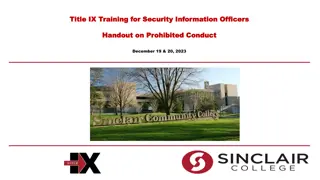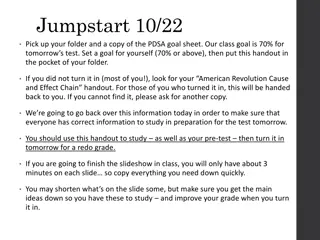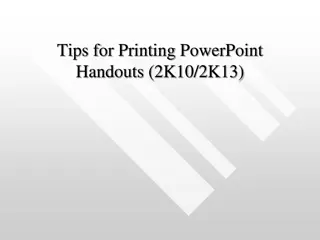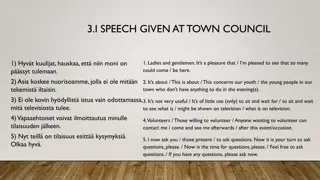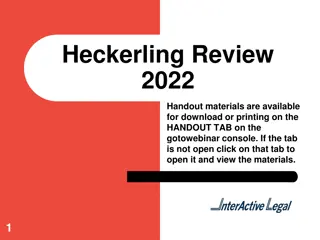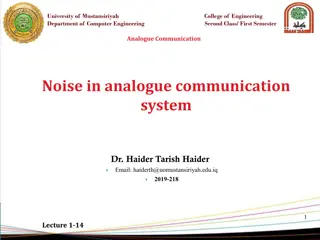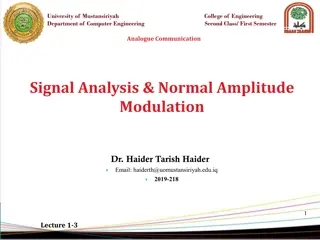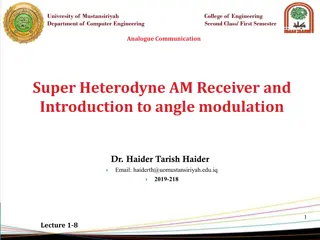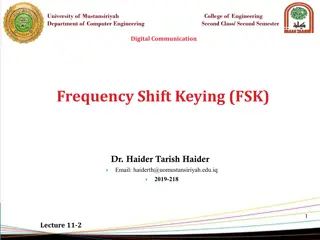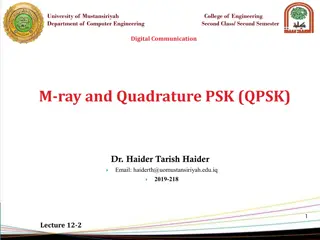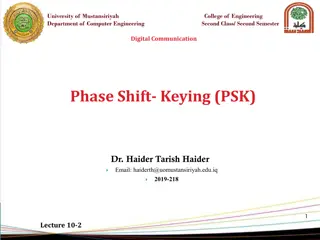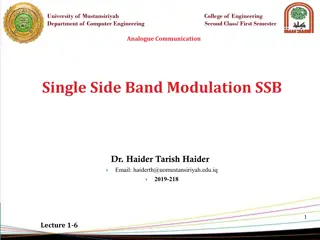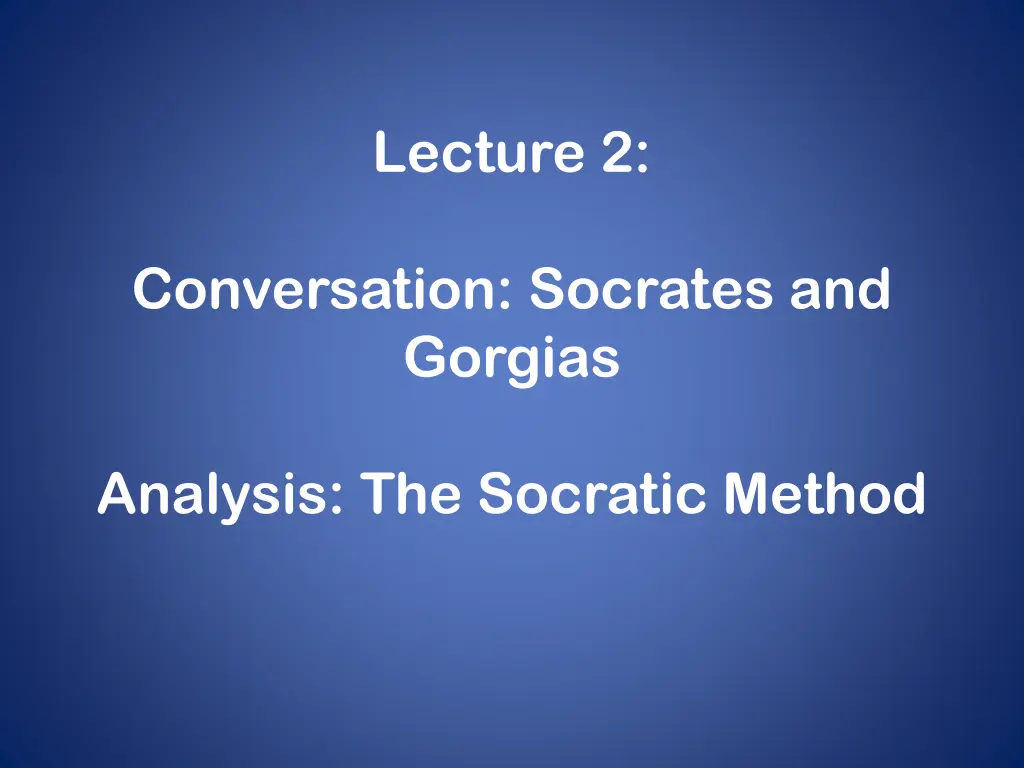
Socratic Method in Socrates and Gorgias Dialogue
Explore the philosophical dialogue between Socrates and Gorgias, focusing on the essence of the Socratic method. Delve into Socrates' claim of ignorance, Gorgias' rhetoric, and the concept of eudaimonia as discussed in the dialogue. Uncover insights into knowledge, expertise, and the flourishing life debated by the characters.
Download Presentation

Please find below an Image/Link to download the presentation.
The content on the website is provided AS IS for your information and personal use only. It may not be sold, licensed, or shared on other websites without obtaining consent from the author. If you encounter any issues during the download, it is possible that the publisher has removed the file from their server.
You are allowed to download the files provided on this website for personal or commercial use, subject to the condition that they are used lawfully. All files are the property of their respective owners.
The content on the website is provided AS IS for your information and personal use only. It may not be sold, licensed, or shared on other websites without obtaining consent from the author.
E N D
Presentation Transcript
Lecture 2: Conversation: Socrates and Gorgias Analysis: The Socratic Method
Stating the Problematic One of the three charges against Socrates: corrupting the young. This implies that he taught the young. Socrates: I can t teach the young because I don t know anything. (Plato s Apology) Questions: 1. Why does Socrates claim not to know anything? 2. Is Socrates as ignorant as he claims to be?
Todays Lecture Close reading: Socrates and Gorgias Gorgias arguments (explanation of rhetoric) Socrates counterarguments Socrates method Socratic irony New concept of knowledge
Socrates opening question Socrates: He professes and teaches a particular branch of expertise, and I want to ask him what it is and what it can do. (447c)
Polus: example of rhetoric Polus: Chaerephon, experience and experimentation have led people to develop professional expertise in a number of areas. Experience brings expertise to the process of human existence, which inexperience leaves it haphazard. Now, there are various areas of expertise, variously practiced by various people, but the best are in the hands of the practitioners. Gorgias here is one of them, and the area of expertise in which he is engaged is the finest there is. (448c)
Oratory is concerned with speech Socrates: What aspect of life does [rhetoric] know about? Gorgias: Speaking. (449d-e)
Link to eudaimonia Socrates: Please tell us, then, what its province is. What aspect of life is the rhetorical use of the spoken word concerned with? Gorgias: The most important and valuable aspect of human life, Socrates. (451d) Note: Note: Eudaimonia: the flourishing life (Friday s lecture) Each of the characters in the dialogue has a different idea of what constitutes a flourishing life.
Eudaimonia: personal freedom and political power (over others) Gorgias: When I say there s nothing better, Socrates, that is no more than the truth. It is responsible for personal freedom and enables an individual to gain political power in his community. (452d)
Rhetoric: art of persuasion Socrates: what kind of persuasion does rhetoric produce, and what is its sphere of operation? (454a) Gorgias: rhetoric produces conviction about right and wrong, but isn t designed to educate people.
Summary of discussion so far What aspect of life is rhetoric concerned with? Speech But all areas are concerned with speech Some are also concerned with manual labour Rhetoric and a few others (e.g. maths) can be communicated entirely through speech Rhetoric is the art of persuasion There are two results of persuasion: producing conviction of right and wrong; producing knowledge Rhetoric produces conviction of right and wrong; the aim is not to educate
A teacher is not responsible Gorgias: A teacher passes his expertise on for his pupils to use when it is morally appropriate to do so which is to say, defensively, not aggressively, and against people who wish them harm and do them wrong. It is the pupils who corrupt and abuse their strength and their skills. That doesn t mean the teachers are bad, and it doesn t mean that the expertise is at fault or is bad either; it only reflects on those who abuse it, surely. (456e-457a)
The orator is never an expert Socrates: But isn t a practitioner of rhetoric in the same situation whatever the area of expertise? He never has to know the actual facts of any issue; instead, he s equipped himself with a persuasive ploy which enables him to make non-experts believe that he knows more than experts. Gorgias: Doesn t that simplify things, Socrates? Rhetoric is the only area of expertise you need to learn. You can ignore all the rest and still get the better of the professionals! (459b-c)
Rhetoric and morality Gorgias: In my opinion, Socrates, he ll also learn about morality from me, if he really doesn t already know. Socrates: Stop there! I m glad to hear you say that. So if you re to train someone as a rhetorician, he must either understand right or wrong beforehand, or gain this understanding at a later stage under your direction. Gorgias: Yes. (460a)
Rhetoric and morality Socrates: So doesn t it follow that someone who has come to understand morality is moral? Gorgias: Definitely. No doubt about it. Socrates: A moral person behaves morally, of course. Gorgias: Yes. Socrates: A rhetorician is bound to be moral, then, and a moral person is bound to want to behave morally. Agreed? (460b)
Socrates ignorance Socrates: But do you think he d be prepared to carry on a conversation with us? He professes and teaches a particular branch of expertise, and I want to ask him what it is and what it can do. He can leave the rest of his presentation for another occasion, as you suggested. (447c)
Conversation vs. Speech-making Socrates: Now, would you mind if our discussion continued the way it s begun, Gorgias, with you asking a question here and answering one there? Would it be alright with you if we postponed the kind of lengthy speech-making which Polus introduced? Please keep your promise and give short answers to questions A display of precision is exactly what I d like from you, and longwindedness can wait. (449b-c) Socrates: You should be aware that I m a prime example or so I m persuaded of the type of person who engages in conversation purely because he wants to understand the topic under discussion. (453a-b)
Pressing for greater precision Socrates: Now, here s another idea of yours, Gorgias, which is open to question and in need of a great deal of clarification. (451d)
Features of the Socratic Method Very few people involved in the conversation (often only two) Ignorance Importance of questioning Pressing for greater precision No satisfying conclusions The state of aporia (= confusion)
The paradox of Socratic knowledge The Apology (early dialogue by Plato) The Delphic oracle: there is no one wiser than Socrates Socrates sets out to find someone wiser than him (e.g. politicians, poets, artisans) He finds these people don t know what they claimed to know Socrates concludes that if in fact he is the wisest person, it s because he did not think he knew that which he did not know. Socrates task is to make other people recognise their lack of knowledge and wisdom. He adopts the attitude of someone who knows nothing irony is Socrates mask. This establishes a difference between what Socrates is saying and what he s thinking.
How Socratic irony works There are two Socrates: One Socrates knows how the conversation will end The other Socrates travels the dialectical path Socrates takes the interlocutor s starting position and demands total agreement Gorgias must try to hold onto his original starting position, and the consequences that follow from it Socrates chooses a topic very familiar to the interlocutor As contradictions are exposed, Gorgias is cut in two Gorgias identifies with Socrates, which is to identify with aporia
Critique of Knowledge Rejects the concept of knowledge as a series of propositions/formulas taught to students ready-made Seems to be a negative method that only brings the interlocutor to a state of aporia Socrates role of midwife: truths engendered in students Gorgias: in passing from knowledge to himself, he places himself in question Real problem is not knowing this or that, but being in this or that way
Next Lecture Eudaimonia and Socrates ethics Primary reading Primary reading: : Socrates discussion with Polus in the Gorgias, 461b-481b. Questions Questions: : 1. What are the different conceptions of eudaimonia held by Gorgias, Polus and Socrates? 2. Why does Socrates think the elenchus is ethical (this is implied, not stated) 3. How does Polus position differ from Gorgias position?


